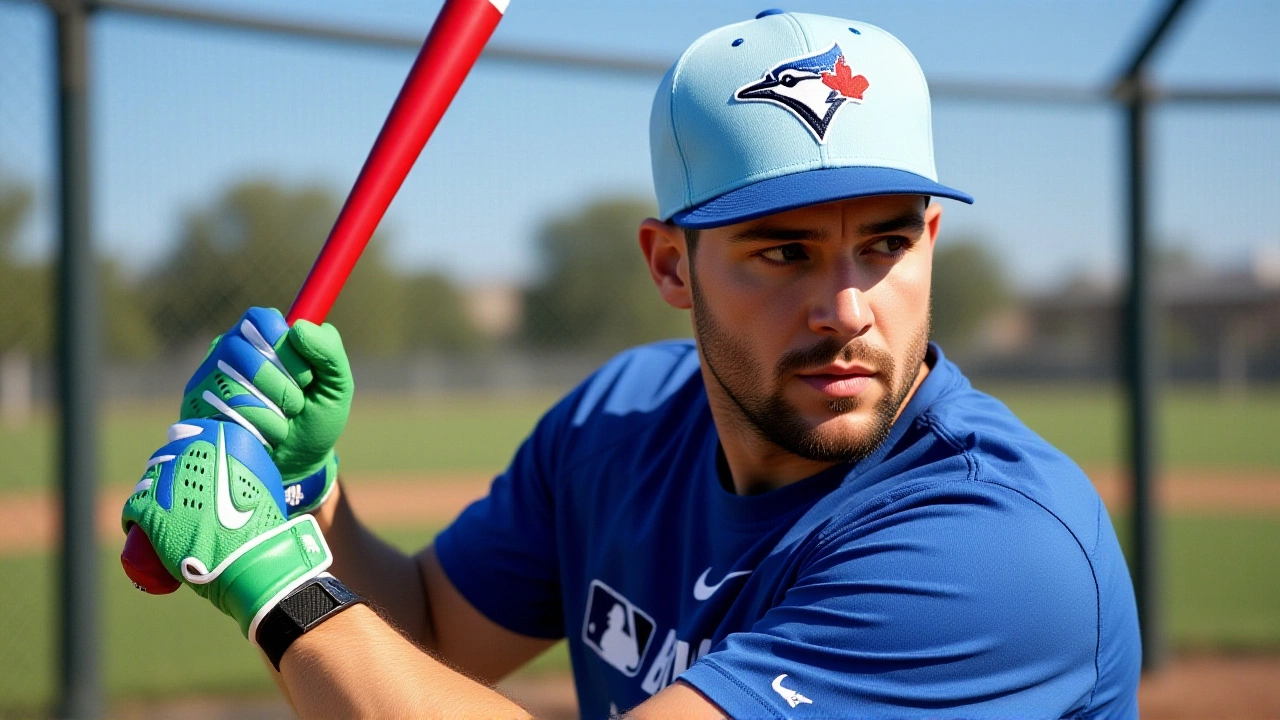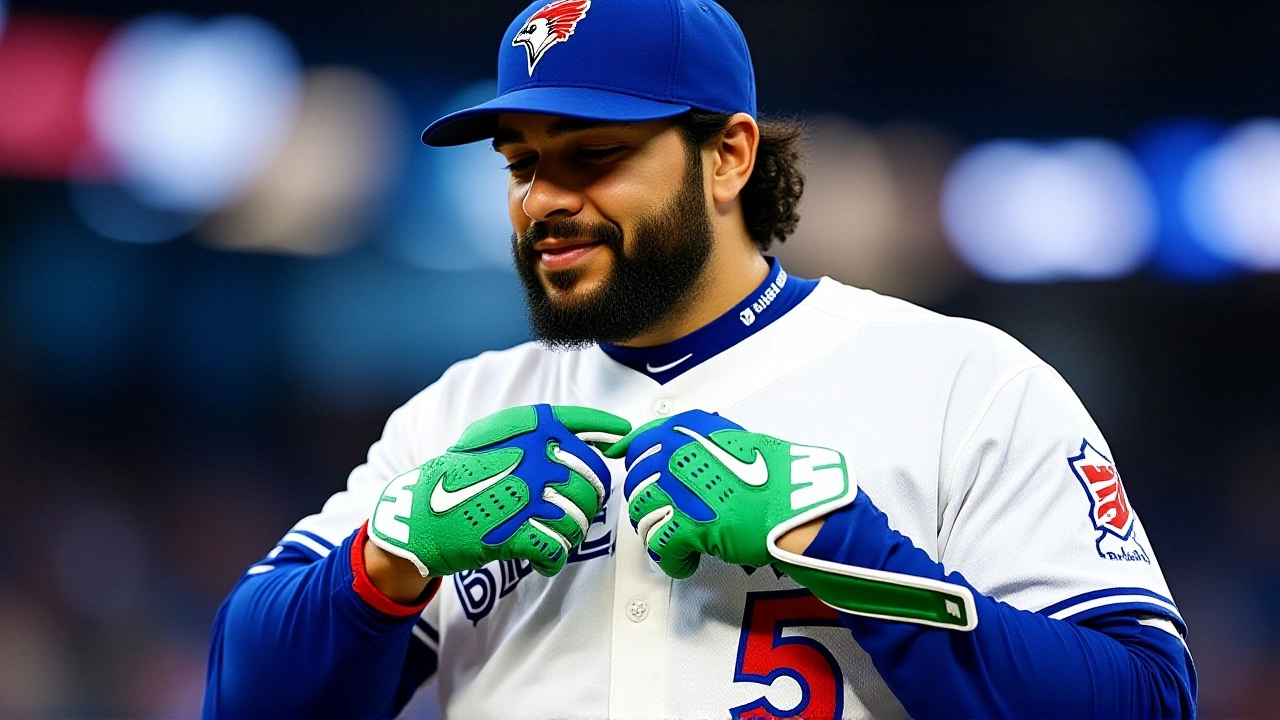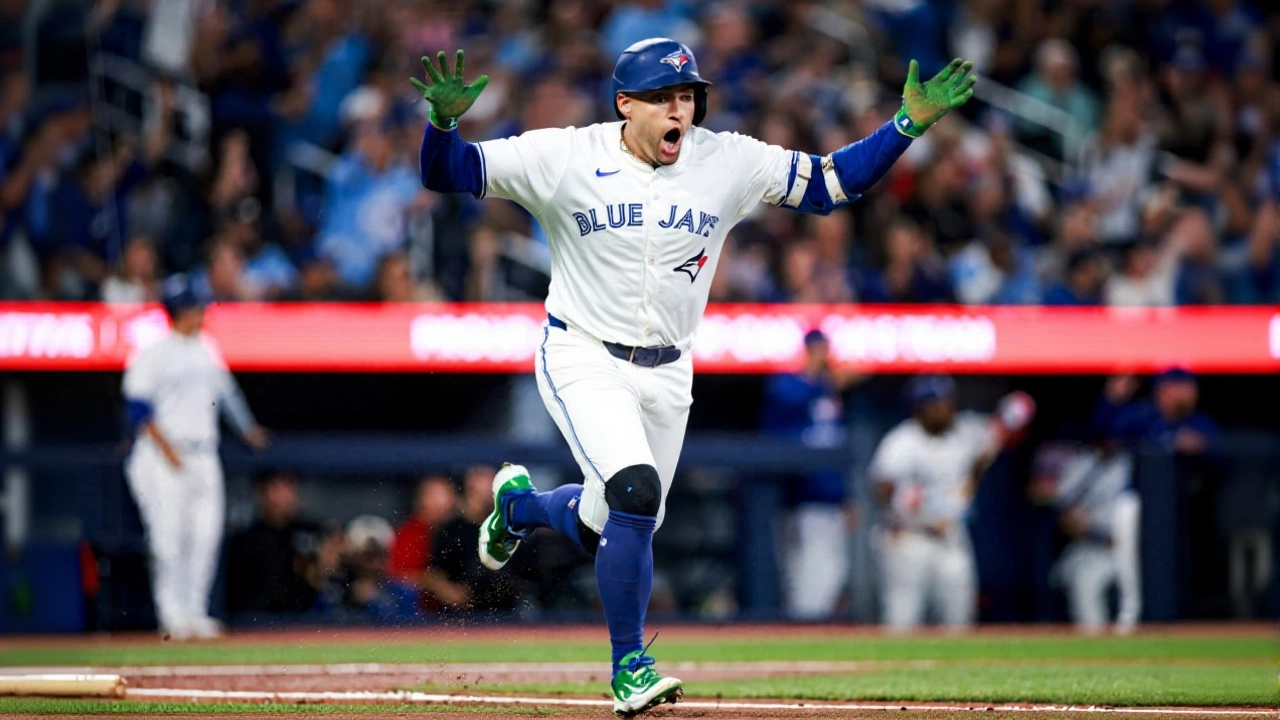When George Springer, right fielder of the Toronto Blue Jays stepped into the batter’s box on Tuesday, September 23, 2025, at Rogers Centre, he could not have imagined that two botched umpire calls would flash across the scoreboard and the headlines alike. The game—a late‑season showdown against the Boston Red Sox—was already a high‑stakes affair, with the American League East title hanging in the balance.
Background: The AL East Race Tightens
Going into the September 23 matchup, Toronto held a two‑game lead over the New York Yankees, thanks to a head‑to‑head tiebreaker earned earlier in the season. A win would push the Jays to a three‑game cushion with just five games left. Instead, a loss narrowed the gap to a single game, forcing the club into a sprint to the finish line.
Game Details: What Happened on the Field
Boston’s Lucas Giolito, starting pitcher entered the game with a 2‑1 count and the bases loaded. In the bottom of the second inning, Springer ripped what looked like a clean double down the left‑field line. The ball sailed past the outfield fence, and the crowd roared as it seemed certain to clear the bases.
But then Scott Barry, third‑base umpire raised his arm and declared the hit foul. Replay monitors, both in the booth and on the stadium’s big screen, showed the ball landing well inside the foul line. The call was not reviewable under MLB rules, leaving the Jays with a missed opportunity.
Moments later, Doug Eddings, home‑plate umpire called Springer out on a pitch that, by all accounts, sat three to four inches off the plate. Analysts on Sportsnet replayed the pitch in slow motion, pointing out that the ball barely tickled the outside of the strike zone.
Umpire Controversy: A Pattern Emerging
The twin blunders were not an isolated incident. Earlier in the month, a fan‑interference call went against Toronto, and a replay decision ruled Daulton Varsho's clean catch a "trap," sparking angry commentary from former Blue Jay catcher Buck Martinez. "Terrible, absolutely terrible," Martinez muttered on air.
Social‑media feeds lit up with accusations of bias, and YouTube analysts from Grunt Baseball and Jays Digest posted videos suggesting a three‑call streak against Toronto in just one week. One commentator summed it up: "Doug Eddings is an absolutely atrocious umpire, and he’s been for many, many years. That strike call was right in front of him and he just blows it."

Reactions from the Dugout and the Stands
Blue Jays manager John Schneider, manager stormed the field, gesturing fiercely toward the umpire crew. "We can't control the calls, but we can control our play," Schneider said after the game, his voice tinged with frustration.
Springer himself was a picture of restrained anger: his hands clutched his head, and his bat trembled as he fought the urge to smash it. The stadium’s 44,722 fans watched in stunned silence as the Jays eventually fell 4‑1.
Impact on the Division Race
Because of the loss, Toronto’s lead over the Yankees shrank to one game. Meanwhile, New York beat the Chicago White Sox at Guaranteed Rate Field later that night, tightening the race dramatically. With the regular season slated to end on September 28, the Jays now need to win at least three of their final five games to clinch the AL East outright.
The controversy has also put the MLB under a spotlight. The league’s headquarters at 245 Park Avenue, New York, has yet to issue a formal statement, fueling speculation that MLB may review umpire performance protocols before the postseason.

What’s Next: The Final Stretch
Toronto’s front office, owned by Rogers Communications Inc., says the focus is on finishing the season strong. "We’re aware of the concerns, but our players know what’s at stake," a spokesperson told reporters on September 24.
Fans can expect the Jays to return to Rogers Centre for a make‑or‑break series against the Yankees on September 26. If the division lead holds, Toronto will enter the playoffs as the top seed in the AL East; if not, a tiebreaker game could be on the horizon.
Historical Context: Umpire Errors and Their Fallout
Umpire controversies are nothing new in baseball history. The infamous 1999 “Steve Busby” call and the 2014 “Mike Dahlen” incident both prompted MLB to broaden its replay system. Yet the current wave of complaints comes at a time when the league is already expanding instant‑review technology, suggesting that further reforms may be inevitable.
What makes this episode stand out is its timing—a decisive late‑season series that could decide a division champion. The stakes are higher, the scrutiny sharper, and the fan backlash louder than ever before.
Frequently Asked Questions
How do the botched calls affect the Blue Jays’ chances of winning the AL East?
The loss narrowed Toronto’s lead to a single game over the Yankees with only five games left. To clinch the division outright, the Jays must win at least three of those matchups, making every remaining game a must‑win.
Who were the umpires involved in the controversial decisions?
Third‑base umpire Scott Barry called the potential double foul, while home‑plate umpire Doug Eddings ruled Springer out on a pitch that was clearly off the plate, according to broadcast replays.
What does MLB say about the umpire performance after the game?
As of September 24, MLB has not released an official comment. League officials are expected to review the incidents before the postseason, especially given the growing criticism surrounding umpire consistency.
Will the Blue Jays request any changes to the replay system?
Team representatives have hinted they will lobby for expanded reviewability of close‑call plays, citing the recent string of non‑reviewable decisions that directly impacted the outcome of games.
How have fans reacted to the umpire controversies?
Social media trended with #FixTheUmpires, and numerous fan groups have organized petitions demanding accountability. The sentiment is unmistakable: many believe the errors have cost Toronto a clear path to the postseason.
